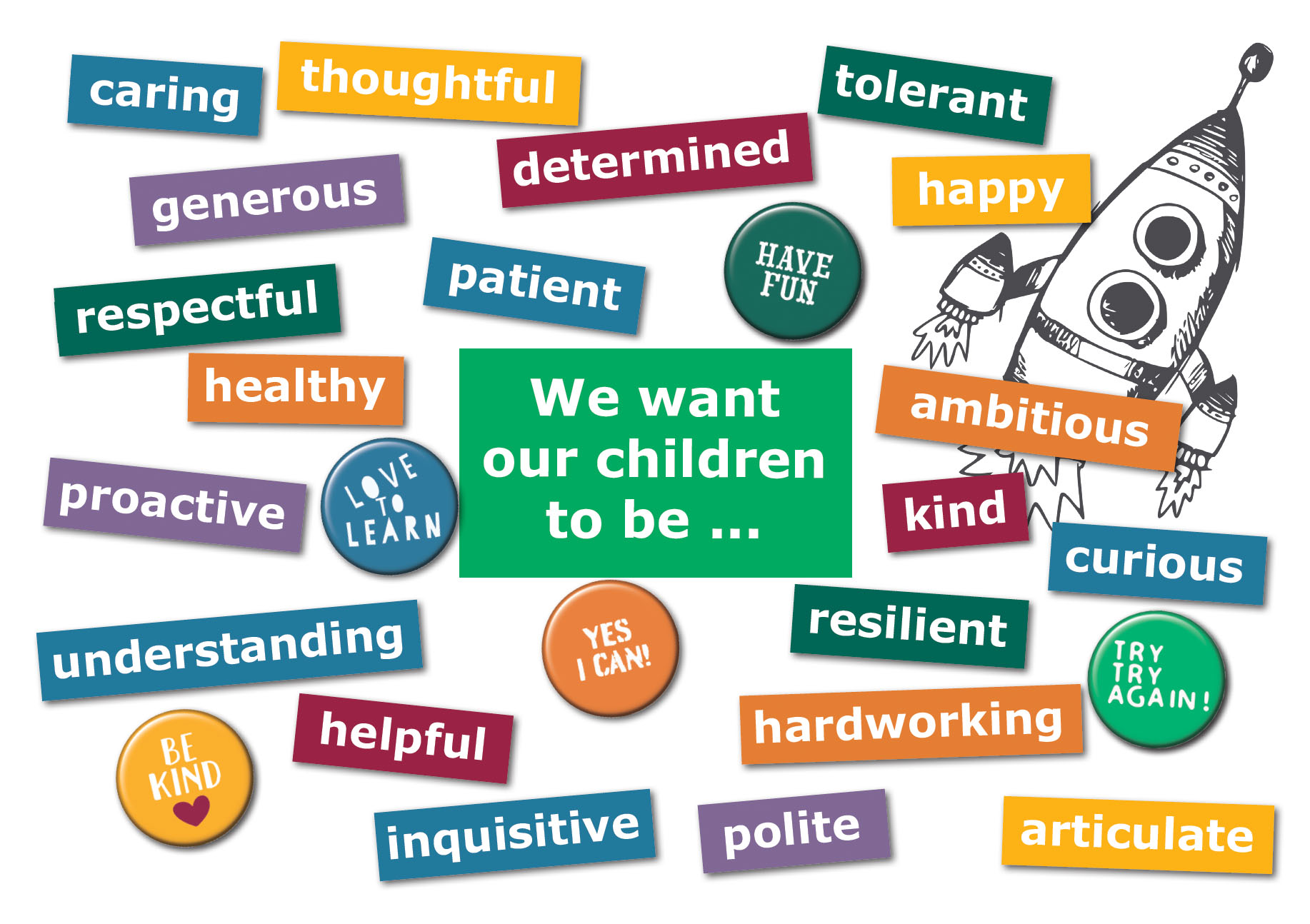Curriculum
Intent
To deliver a curriculum which:
- Inspires and encourages children to become lifelong learners, where they have a passion to learn and the knowledge and skills to take with them into the next stages of education and the world of work, through a secure understanding of the need to develop resilience and independence.
- Instils the understanding that if they work hard, apply their learning and are determined and ambitious, they can achieve anything.
- Teaches a knowledge of the world, giving children opportunities and experiences to grow their cultural and social capital and develop their understanding of how they belong to the local, national and global communities.
- Allows children to deepen their knowledge through an ability to question effectively, enabling them to be curious and inquisitive learners.
- Develops children’s self-belief as learners and as citizens, valuing their physical and mental well-being development in order that they feel confident and ready to tackle any challenge they may face.
- Develops children’s understanding and awareness of the world in which they live and enables them to be respectful and understanding of others, honest, caring and patient citizens.
- Values creative and immersive leaning opportunities that are deeply rooted in knowledge and skills.
- Places an equal value on all curriculum areas and ensures children are shown a wide range of possibilities available for their future so they become successful, confident and accurate historians, geographers, artists, linguists, designers, scientists, athletes and musicians, learning at their own pace and in the best possible way to enable each child to flourish.
- Includes (through careful planning and design) many opportunities for repetition, practise and application of essential knowledge and skills, making clear links to core subjects to ensure children are able to develop a deeper understanding in their learning over time, not just merely covering content.
Implementation
Teaching and Learning, Content and Sequence
- Children are taught knowledge and skills that are at least in line with national expectations.
- The Wider Curriculum Overview shows knowledge and skills across Years 3 to 6
- Class teachers are equally accountable for the content, progress and attainment of children and their development of knowledge and skills.
- Knowledge and skills are grouped into projects; giving knowledge and skills a context in which to learn. Projects allow children to learn about important events, places, people and ideas.
- Long term planning through the Wider Curriculum Overview ensures that skills and knowledge are progressive between year groups and means learning builds on prior knowledge. The Curriculum Overview ensures the curriculum is not narrowed: each project incorporates several subjects, and these are primarily lead by humanities subjects but not restricted to. Every subject is taught in every year.
- Children are given opportunities to evaluate their learning at each stage.
- Currently, elements or all, of some subjects, are taught as stand-alone lessons for example science, RE, MFL and PE. This enables the National Curriculum to be covered appropriately.
- Each project’s title is an enquiry question and this leads the learning.
- Each component of a project teaches children new knowledge and builds on skills they will need in order to answer the project title question and create the planned project end product.
- Teachers use the school’s planning documents to design a project which is cumulative and leads to a planned outcome. We encourage parent/ carer involvement in children’s learning through home learning activities linked to the project and inviting them into school to participate in the project’s outcome.
- Curriculum resources are selected to enhance the curriculum intention for each lesson.
Leadership, assessment and feedback
- The leadership of the wider curriculum is shared between the wider curriculum leaders and individual subject leaders. The wider curriculum leaders have a clear role and the responsibility of overseeing the progress of all children in all subjects. Individual subject leaders monitor the implementation of the curriculum.
- Feedback is given on children’s learning in line with our feedback policy. Formative assessment within every lesson helps teachers to identify the children who need more support to achieve the intended outcome and who is ready for greater challenge through planned questioning or additional/ alternative activities.
- Summative assessments are made of children’s learning at the end of project. Children are assessed on their level of understanding of each curriculum objective after each project is completed and a summative judgment of the child is made towards the end of the year in order to feed into the next academic year’s learning. These assessments are fed back to parents/ carers in the end of year report.
Impact
- Children have pride in their work, they enjoy and are engaged in their learning.
- There is a whole school focus on the impact and on-going improvement in the teaching of foundation subjects: teachers are placing a greater value on the importance of knowledge as the foundation of skills. Lessons have a clear structure and components of learning are carefully planned to lead towards composite outcomes.
- Pupils’ books indicate that learning in the wider curriculum is more engaging and less teacher led than previously. Books are showing an improving emphasis on the teaching of skills which are progressive through school, applied in a range of subjects and are selected independently.
- Children’s knowledge and skills in different subjects are interwoven and linked to support joined up learning and application of knowledge.
Curriculum Threads
Subject Overviews
Extra Curricular
Nether Green Junior School
Fulwood Road
Sheffield
S10 3QA
Tel: 0114 230 2461
Headteacher: Mr W Allen
Website by wendy mayes [design]
